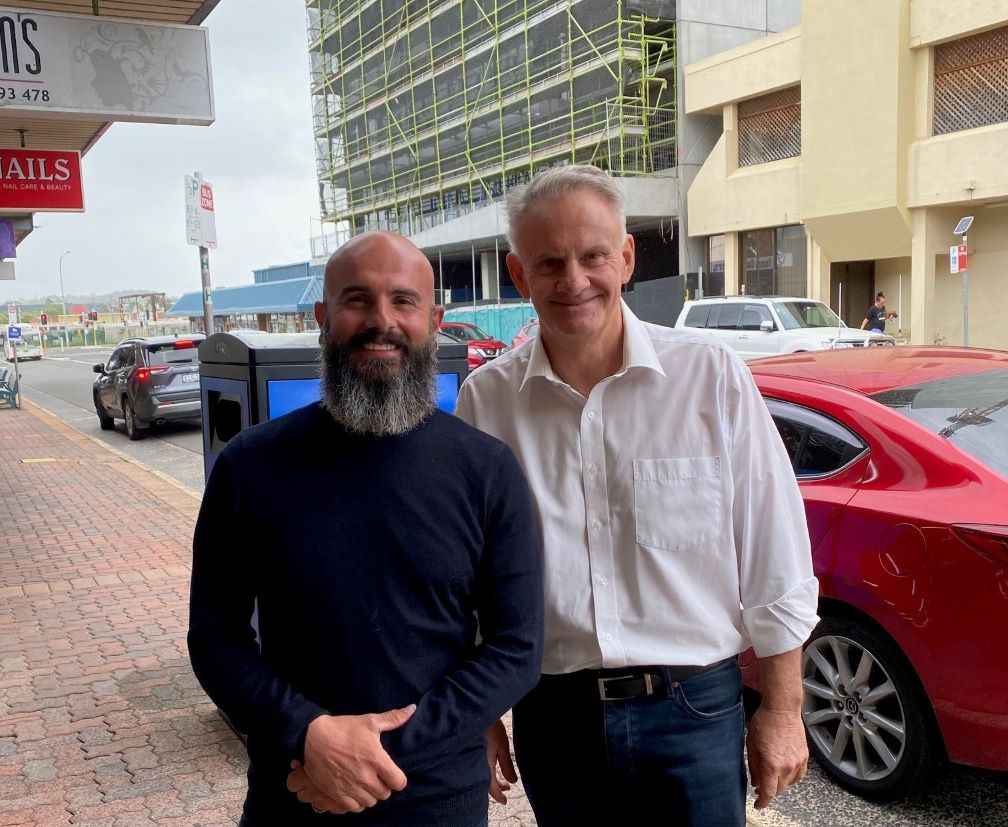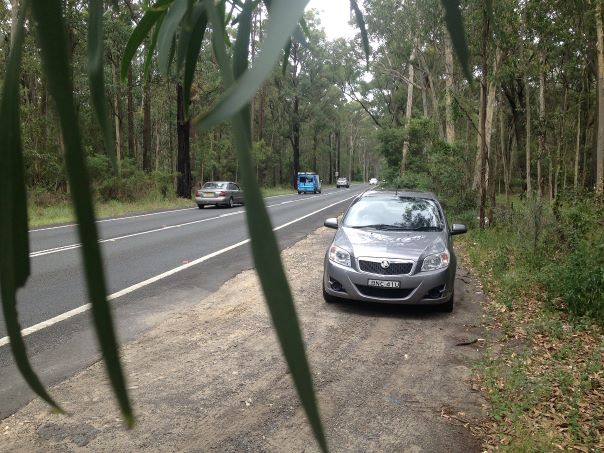
If you live in Campbelltown or anywhere else in the South West and you want affordable and reliable electricity and a good education for your children vote One Nation on March 25.
That was the message from Mark Latham, the leader of One Nation in NSW, when he came to Campbelltown to discuss his party’s platform heading into the election.
Accompanied by Adam Zahra, his candidate for Campbelltown, Latham was in ebullient mood about his party’s chances.
“We’re hoping to field between 20 and 25 candidates in Lower House seats,’’ he says as we sit down for a chat in Seta’s, a café in the heart of Campbelltown.
“We’re concentrating on regions like this, South Western Sydney, with Adam here, Garry Dollin in Camden and Rebecca Thompson in Wollondilly, they’re pretty strong candidates.
“People in this area look to us to for representation and to raise issues on their behalf, so it’s very important to get some good candidates in the Lower House,’’ says Latham.
February 28, the day he turned 62, Latham was no longer an MP, having resigned his Upper House seat after four years there.
The plan is to run again, win a few more spots and gain the balance of power in the NSW parliament.
“Hopefully it’s a good birthday present, not a bad one, and the public thinks I’ve done a good enough job to put me back in there,’’ he says.
“We got two last time, so if we get two or three this time it may be four or five in the Upper House.
“It would be great to get some Lower House representations as well.
“We’re one of the few groups that’s been stable; while everyone else has problems, we’re growing.
“At One Nation we put high emphasis on being stable so we’re dependable for people,’’ Latham says.
So what’s in it for us out here in Campbelltown and the rest of South Western Sydney if you win the balance of power, asks the South West Voice.
Latham’s answer reveals two things.
One, he’s got his finger on the pulse when it comes to his own patch out here in Macarthur and South Western Sydney.
The second is a powerful reminder of his intellectual acuity.
“The one local project that needs to be funded around here is upgrading Appin Road,’’ he says.
“It’s been a blackspot and traffic accident risk for way too long, and I’d rather see money spent on Appin Road than the Billabong, to me one of the most ridiculous projects government wasted money on.

“Recently the government announced $79 million funding for the Campbelltown arts centre out of Westinvest.
“Well, we’ve got a pretty good arts centre in Campbelltown, and most people would say all these projects have some merit, but overwhelmingly the first priority should be Appin Road.
“If we put the money for the Billabong and the arts centre into Appin Road it would be a lot closer to a masterplan to make it a dual carriageway, a four lane road, which is what it needs to be.
“So that’s the number one thing we’d be pressing for Campbelltown,’’ says Latham.
Turning to education, the One Nation leader points out that NSW has the fastest falling school results in the world.
“Whatever I’ve been able to do in life was because of a good education, in the local government area of Campbelltown at Hurlstone Agricultural High School,’’ he says.
“We have a policy of bringing back the school inspectors, and in ensuring in every classroom that things are being done according to the evidence, which is direct instruction teaching, strong behavioural standards, phonics in literacy and regular testing and data measurement of students.
“And the inspectors reporting directly to the parents to say, I can give you a guarantee that in your kid’s classroom things are being done according to what works best.
“So that’s the best way to upgrade school results, which is critical, I mean if you grow up in Campbelltown, a good education is fundamentally important to your prospects in life.’’
As for electricity, Latham makes it very clear One Nation don’t believe in going down the path of 100 percent renewables in light of official warnings blackouts are on the way in a couple of years.
“Keeping the lights on and making sure people in Campbelltown have a job is vitally important,’’ he says.
“It would be a disaster here for manufacturing, for retail, the community services sector, for everyone, a social and economic disaster.
“Our policy is about stopping the foolhardy transition to a so called clean energy economy, and lifting the ban on nuclear power, which is a long term solution.
“We’ve got to fundamentally change where we’re headed on energy,’’ Latham says.
“I am against the haste with which they’re trying to transition, and I’m against the loss of baseload power, which is power that runs 24/7.
“Renewables have got a place in the system and they’re being built and you’re not going to blow up or throw them in the ocean, they’re going to continue to function.
“But we’ve got to recognise that when the wind is not blowing and the sun’s not shining you’re not going to have the electricity system you need to power a modern economy.’’
Mark Latham’s political career started with Liverpool Council, where he introduced plenty of reforms, including popular vote for mayor – which he subsequently won.

He was seen as the Labor Party’s young star on the rise and was elected to federal parliament as the member for Werriwa in 1994.
Ten years later he was the alternative Prime Minister of Australia when he led the Labor party during the 2004 federal election.
Beaten by the wily John Howard, Mark Latham stayed away from politics until he ran for the Upper House in the 2019 NSW election as the leader of One Nation.
Having served in all three tiers of government, we asked Latham what he thought of modern politics in Australia.
“Coming in to state parliament I’ve noticed that with the politicians we’ve got now most are scared of their own shadow,’’ Latham says.
“They are timid, indecisive, scared of doing anything that’s worthwhile.
“Whereas in One Nation we pride ourselves on being straight talkers, common sense about the issues and fighting hard.
“Politics to some extent has become paralysed around the big things that affect people.
We try to break that mould and be decisive and strong.’’
Latham says that when he got to Canberra in 1994 there were “a whole bunch of politicians who were experts in a particular area, tax policy, defence or health, the economy or industrial relations’’.
“And coming in to state parliament there are very few specialists who could sit down with the bureaucrats and match them for knowledge on what’s going on,’’ he says.
“So the ministers don’t run their departments anymore.’’
Having known Latham for decades I suggest to him that he has never looked more content with his lot in life.
“I am happy in state parliament, especially working on education matters, raising issues no one else talks about, and getting positive feedback.
“I am also pretty happy with the state role with One Nation and hoping to take it further.’’
